


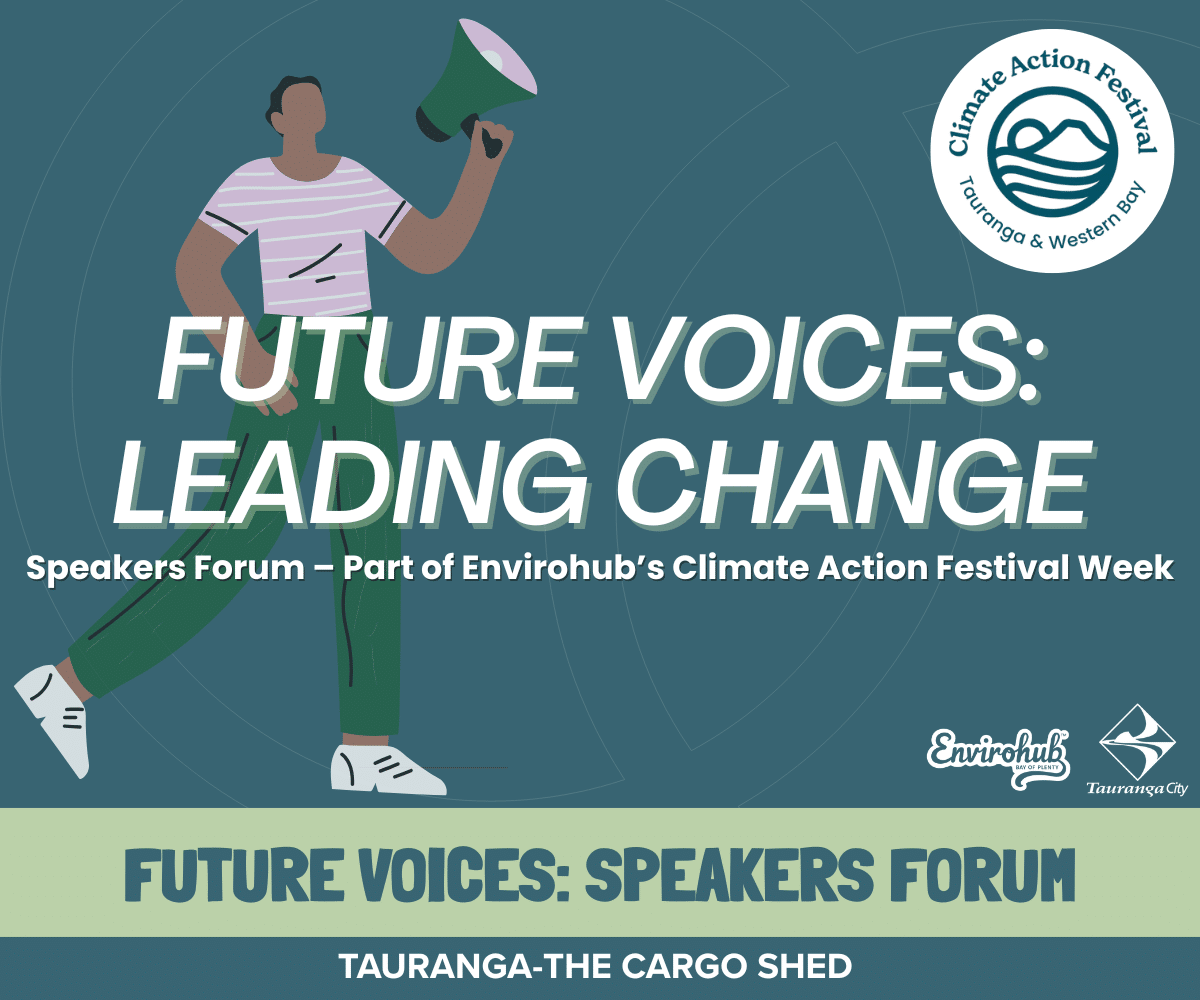
13 Nov
5:30 pm - 7:30 pm
Speakers Forum
Event Details:
Date: Thursday, November 13th, 2025
Time: 5:30pm – 7:30pm
Location: The Cargo Shed, Tauranga Waterfront
Tickets: $10
Presented by: Envirohub BOP & Tauranga City Council
Registration:
Spaces are limited — secure your spot before we sell out!
Enquiries:
Email: hannah@envirohub.org.nz
Description:
Climate action comes from all corners of our community, and this evening celebrates the voices leading the way. Eight emerging changemakers will share their journeys and the meaningful work they are leading across the Bay of Plenty, from community projects to environmental initiatives, demonstrating creativity, dedication, and real impact.
The evening will start with drinks and nibbles before the speakers take the stage, offering insights into the projects and ideas shaping the region’s climate action. This is a chance to be inspired, connect with passionate changemakers, and discover ways to contribute to a more sustainable future.
Speakers of the Night:
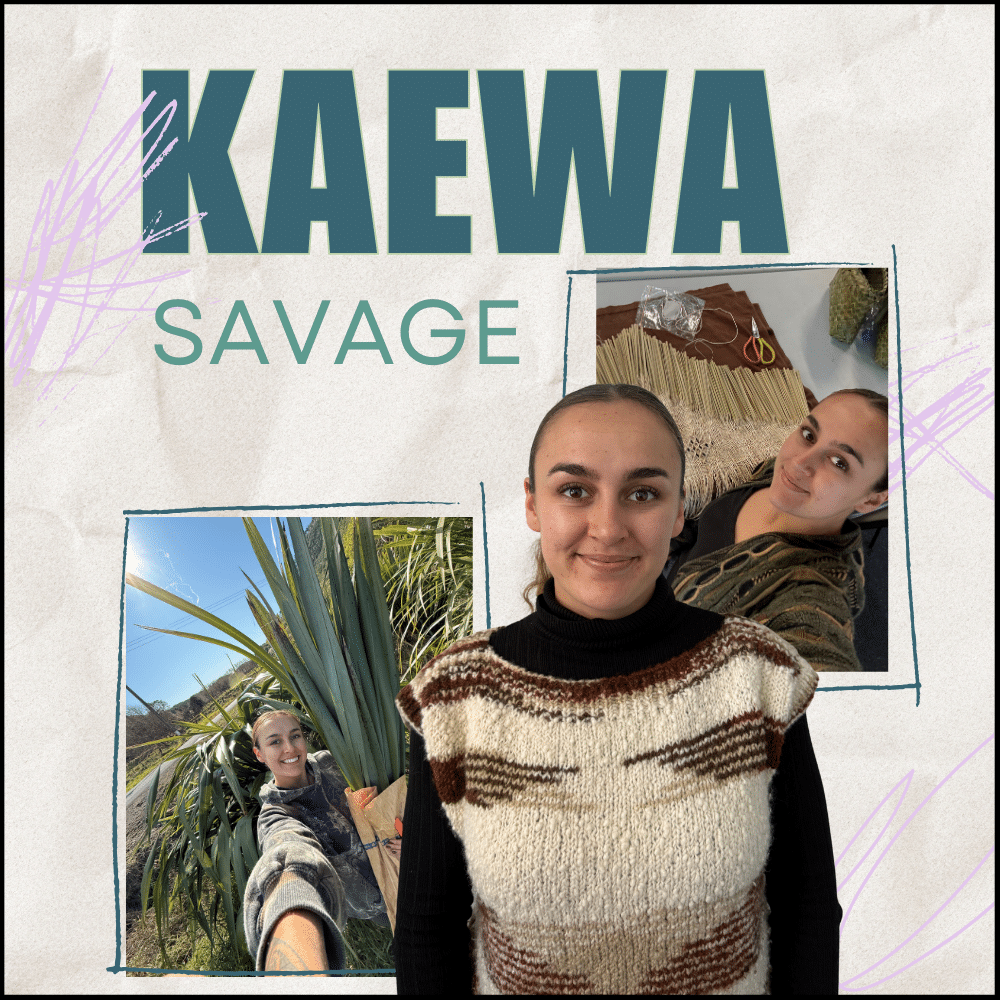
This kōrero draws from my master’s research within Whakapiki Tūhono ki te Whenua, exploring how reconnecting to whenua strengthens our capacity for climate action. Grounded in kaupapa Māori values, the research highlights how whānau-led practices that restore te taiao and mauri create pathways toward resilience and regeneration. This kaupapa reminds us that true transformation begins in our relationship with Papatūānuku. By reconnecting to whenua first, we take responsibility for restoring our relationships to te taiao while ensuring our actions today sustain life for the generations to come

I’ll be sharing a rangatahi Māori perspective on climate action through the values of kaitiakitanga, manaakitanga, and rangatiratanga. I’ll explore how mentorship, intergenerational connection, and storytelling can bridge generations, honour all forms of mātauranga, and inspire collective responsibility for our taiao. For me, it’s about what it truly means to be kaitiaki today so that our future generations can thrive.
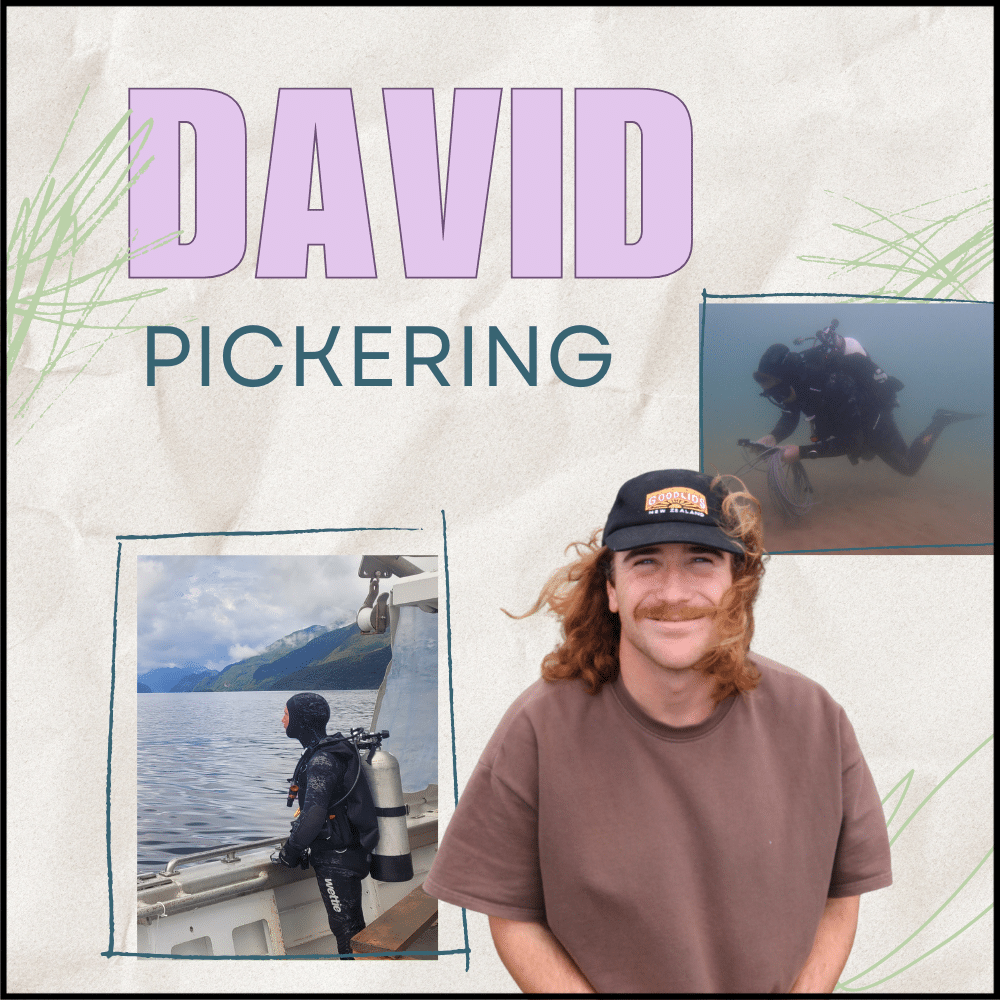
Marine biosecurity is about protecting our oceans from invasive marine pests that can harm native species, fisheries, aquaculture, and the way we enjoy our coasts. Our work spans from dive surveillance and early detection to advocacy and collaboration with local communities and industry — all aimed at preventing pests from spreading. That’s what’s happening out on the water and behind the scenes, but what can you do? Everyone can help protect our marine environments and take real climate action to keep our coasts thriving.
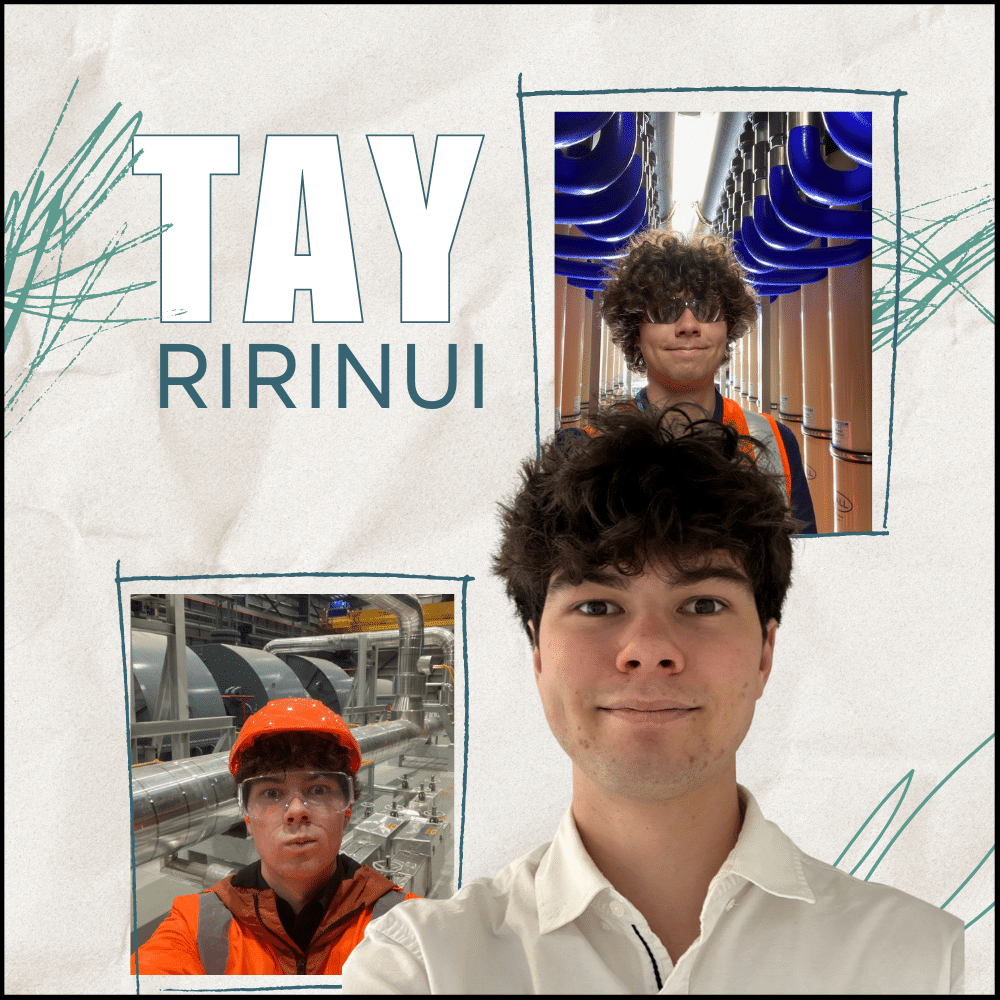
Exploring the technical field of environmental engineering and how the integration of Te Ao Māori can enhance environmental outcomes and climate action.

Te Aorangi will explore how climate change has impacted whenua Māori across Aotearoa, from eroding urupā and shorelines to flooding marae and damaging infrastructure. The kōrero will highlight the importance of collaboration between iwi, hapū, and the public and private sectors, and the role of young leaders in driving sustainable solutions.
Grounded in Māori frameworks and whakataukī, Te Aorangi will share how indigenous knowledge and kaitiakitanga are vital to addressing the global climate crisis, ensuring our mokopuna can enjoy the same lands, waters, and places we do today.

Matilda will explore how design influences the way people understand, feel, and act on climate change — with a focus on designing for behavioural change within the climate sector.
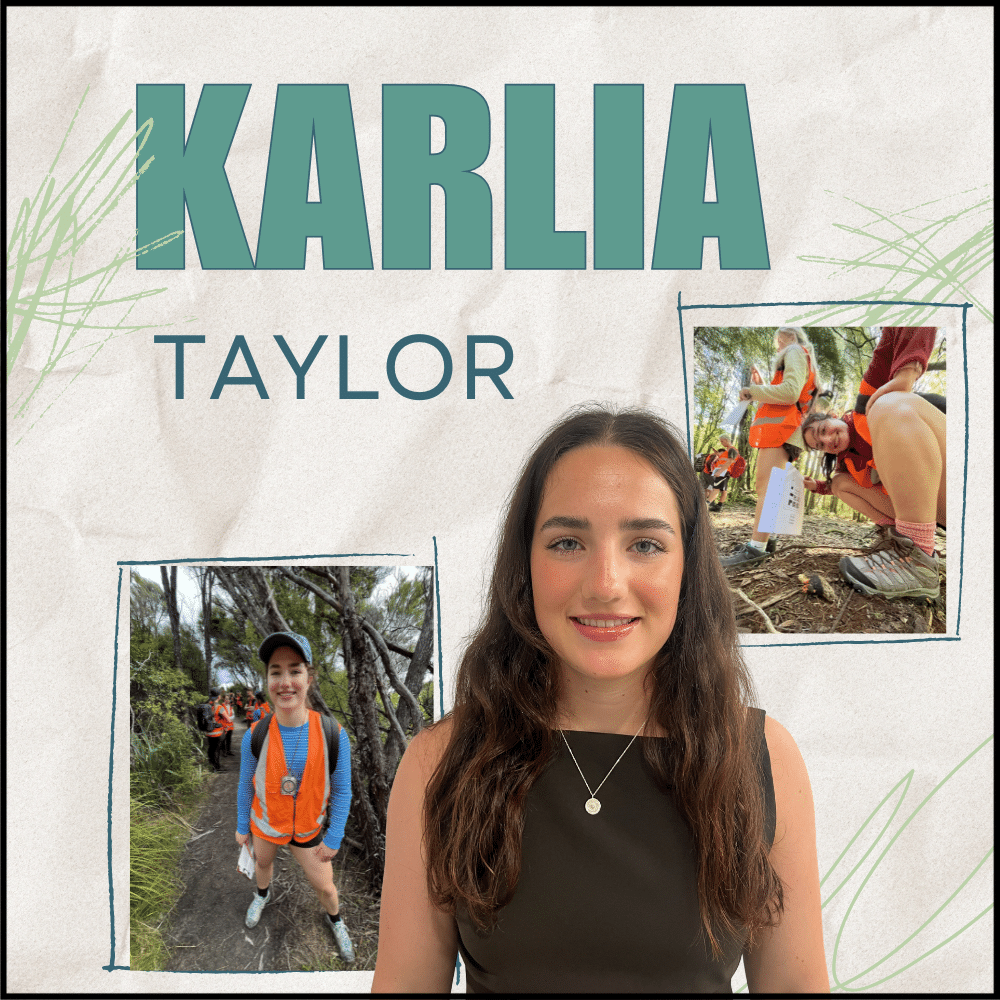
This discussion explores the concept of path dependence at a systematic and individual level to understand the barriers to climate action. It looks at how we can therefore frame the problems around climate change differently in order to make climate action manageable and accessible, focusing on small habits that make a difference as a collective. How do we bridge the gap between being educated on climate science and using that knowledge to choose positive actions that support te taiao?
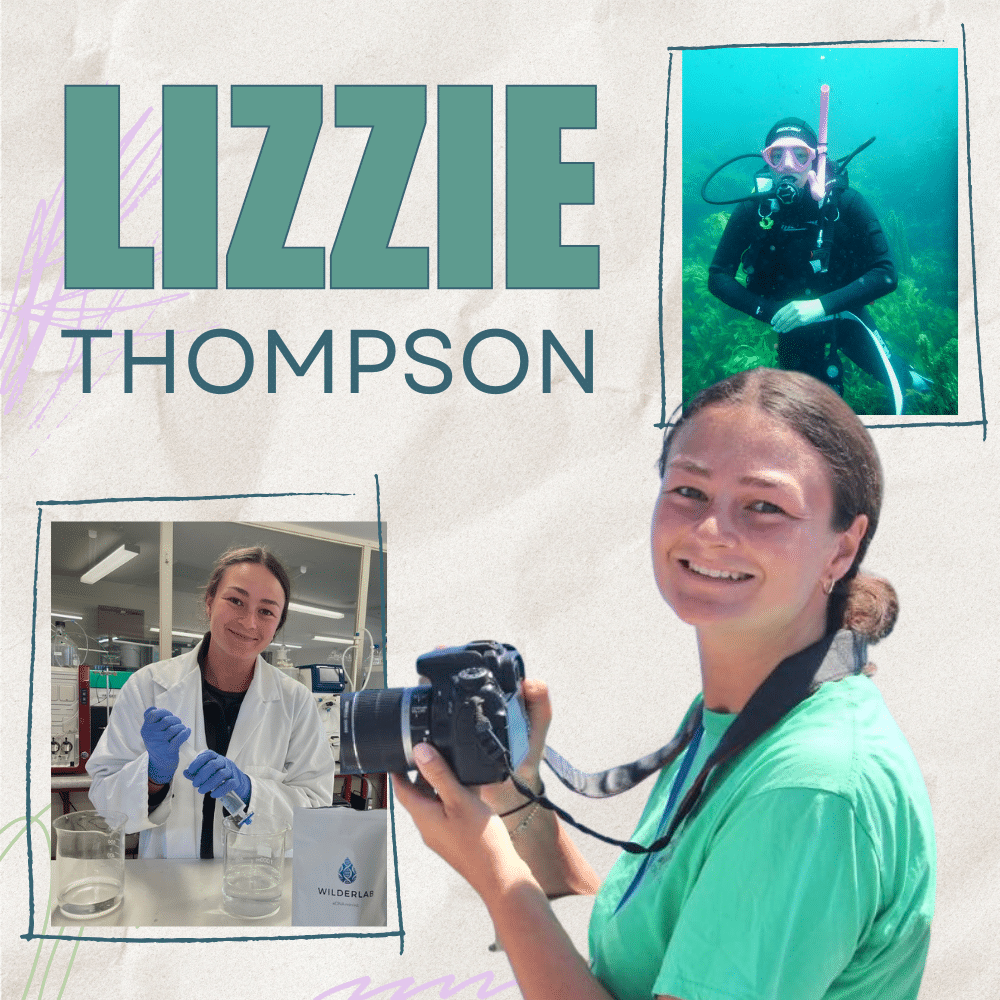
Marine Scientist. Masters of Science (Research) graduate from the University of Waikato
Thesis: Ecological Impacts of Human-Induced Disasters on the Marine Environment
This talk draws from my Master’s research exploring how human-induced disturbances and climate stressors affect the resilience of local reef ecosystems at Astrolabe Reef and Motiti Island. Through underwater manipulation experiments and long-term monitoring, my work examined how disturbance and contamination influence the recovery of marine communities and what this means for the future health of our coastal environments. Beyond my research, I’ll reflect on how climate change is already reshaping our local ocean systems, from shifting species and rising temperatures to the decline of kelp forests, and how science and community action together can help protect the resilience of our marine ecosystems.
Location
